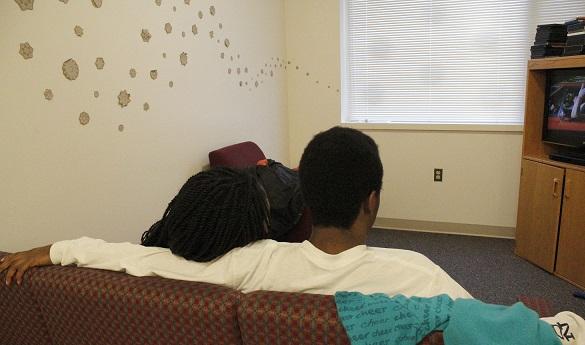Mason introduces co-ed living options
Beginning in Fall 2014, returning students applying for on-campus housing will have the new option of “flexible housing” which allows students to live with the opposite gender.
“This is intended to provide more options to students as far as where they can live,” said Tera Monroe, Director of Residence Life.
According to Monroe, this idea is neither new nor recent. “At least 150 universities across the country already offer this option, and many have for quite some time.”
The option is only available in upperclassman dorms, where the floors are already co-ed. It will not change the living dynamic on the individual floors.
Students interested in this option must complete a unique application separate from the regular application. The application for flexible housing will take place in person, whereas regular housing selection is all done online.
“There is an additional form you have to fill out to indicate you are interested in flexible housing, and you must also sit down with a [residence life] staff member to make sure you understand what it means, therefore all parties are agreeing to this decision,” Monroe said.
This option would only affect those who have mutually agreed to live in such a space. No student that applies for regular housing will be placed in a co-ed space.
This gender-neutral option is geared towards a variety of students -- siblings that wish to live together, those who feel more comfortable around the opposite sex, transgender students, etc.
“The goal of introducing Flexible Housing to Mason students is to provide more housing options to our very diverse and ever changing residential population. We in housing are extremely committed to providing comfortable living options to promote the success of our students,” said Melissa Thierry, Assistant Director for Housing Services.
This option simply takes away the gender variable when it comes to housing, and allows students to live with whomever they are most comfortable.
“The intention is to provide a safe space for students that wish to live with the opposite sex,” said Monroe. “This makes Mason’s housing facilities very marketable as it increases the options for students when it comes to their living space . . . Students are already living in such environments off campus, so flexible housing makes on-campus living more appealing to students with those interests.”
Housing has created a special process to deal with these spaces if and/or when one of the consenting roommates decides to leave the room.
“Should somebody move out, there is a timeline of 5 business days in which the students in the space will have to fill that spot,” said Monroe. “If they cannot find someone, and don’t want a consenting person whom we have found that would like to take the space, we would potentially have to break it up and turn it into a regular housing arrangement.
Other schools that have implemented such an option have not seen a huge interest from students. However, in the past Mason has had students inquire about this type of living arrangement, which has resulted in opening up the option to those interested.
Resident Advisors have already been informed and trained on this new option, in order to be able to help students interested in exploring this option and aid in the implementation for the fall.
“We build a comprehensive staff training program that will help all of our residence hall staff serve the students living in the halls,” said Monroe. “As an RD and RA you work with your hall communities to get to know your residents and to be a resource for them.”
If a conflict arises specific to a flexible housing arrangement, it will be treated on an individual basis.
“Being the first year introducing a new option, I do have concerns with the implementation; simply wanting the application process to be smooth for all involved,” said Thierry. “Housing Services will conduct assessment throughout the next year to identify ways we can improve our process.”

